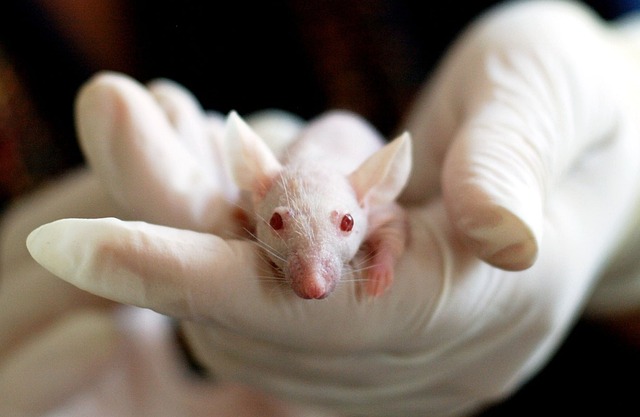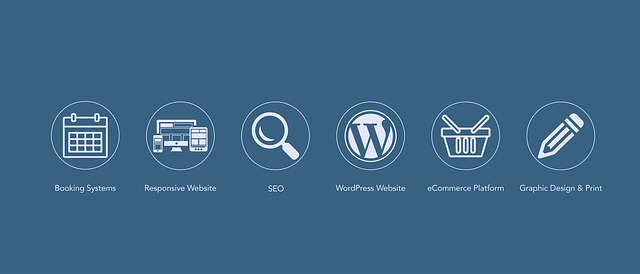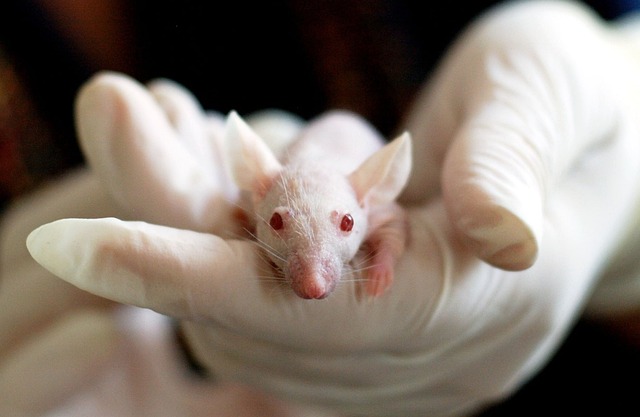In the UK's R&D sector, clear documentation facilitated by professional translation services is essential for success. These services ensure complex scientific ideas are accurately conveyed globally, maintaining document integrity, precision, and accessibility. By condensing verbiage, preserving technical accuracy, and navigating cultural nuances, translations enable effective communication, foster international collaboration, and drive innovation. This is vital for research papers, patent applications, and clinical trial reports, ultimately maximizing the impact of UK R&D contributions worldwide. Future advancements in technology will further enhance translation quality and accessibility.
Are your UK R&D documents clear and concise? Effective communication through well-crafted research papers is vital for success in the scientific community. However, navigating complex terminology and ensuring accuracy can present challenges. This article explores essential strategies to optimize your UK R&D document translation, including understanding clarity’s importance, addressing conciseness issues, leveraging professional services, and adhering to legal ethics. Discover how these practices enhance efficient communication and foster collaboration within the research landscape.
- Understanding the Importance of Clarity in UK R&D Documentation
- Challenges in Maintaining Conciseness within Research Papers
- The Role of Professional Translation Services
- Ensuring Accuracy in Scientific Terminology
- Optimizing Document Structure for Efficient Communication
- Case Studies: Successful Translations in UK R&D
- Legal and Ethical Considerations in Document Translation
- Integrating Translation into Your Research Workflow
- Future Trends in UK R&D Document Translation
Understanding the Importance of Clarity in UK R&D Documentation

In the realm of UK Research and Development (R&D), clarity in documentation is paramount. When it comes to translating and interpreting complex scientific or technical ideas, precise language is essential. Unclear or convoluted documents can lead to misunderstandings, delays, and potential legal issues down the line. Therefore, ensuring your R&D papers are concise and easily comprehensible is a game-changer. This is particularly true when dealing with international collaborations or seeking external funding, where your work must resonate with diverse audiences.
Translation services play a pivotal role in this context, offering specialized expertise to navigate the challenges of cross-lingual communication in R&D. These services guarantee that critical research findings, methodologies, and conclusions are accurately conveyed, preserving the integrity and impact of the original work. By seeking professional translation for UK R&D documents, researchers can avoid potential pitfalls and ensure their ideas are clearly communicated, fostering better collaboration and advancing innovation.
Challenges in Maintaining Conciseness within Research Papers

Maintaining conciseness in research papers is a challenge that many scientists and researchers face, especially when dealing with complex scientific concepts and findings. The pressure to convey intricate ideas accurately while adhering to strict word limits can be daunting. This issue is particularly relevant for UK R&D documents, where clarity and precision are paramount. Often, the desire to include every detail and finding results in lengthy manuscripts that may detract from the core message.
Translation services play a vital role here by helping researchers ensure their UK Research and Development Documents remain focused. Professional translators can assist in condensing complex information without losing its integrity, making it easier for readers to grasp key insights quickly. They bring a fresh perspective, enabling scientists to identify unnecessary verbiage and refine their writing, ultimately fostering more effective communication of research outcomes.
The Role of Professional Translation Services

In the realm of UK Research and Development (R&D) documentation, clarity and precision are paramount. When dealing with technical and scientific content, professional translation services play a crucial role in ensuring your documents are not only accurate but also accessible to a global audience. These services employ specialized translators who possess deep knowledge in various fields, enabling them to render complex ideas into simple, understandable language.
Translation services for UK R&D documents go beyond mere word-for-word translation. They involve adapting content to suit cultural nuances and regulatory requirements, ensuring compliance and effectiveness. By leveraging modern technologies and industry expertise, these services enhance the readability of research papers, patent applications, and clinical trial reports, facilitating collaboration and innovation on an international scale.
Ensuring Accuracy in Scientific Terminology

Maintaining clarity and precision in scientific documentation is paramount, especially within the dynamic realm of UK Research and Development (R&D). When crafting or reviewing R&D documents, it’s crucial to ensure accuracy in scientific terminology to prevent misinterpretations and foster effective communication. This becomes increasingly vital when translating these documents for a global audience or international collaborations.
Professional translation services play a significant role here by providing native-language experts who understand the nuances of scientific terms. They help bridge the gap between technical jargon and layman’s language, ensuring that R&D documents remain accessible and accurate across borders. This is particularly essential in the UK, where research output has global implications, and precise translation can significantly impact project outcomes and international partnerships.
Optimizing Document Structure for Efficient Communication

In the realm of UK R&D documentation, clear and concise communication is paramount. One key aspect to achieve this is through an optimized document structure. A well-organized document allows for efficient navigation, ensuring that critical information can be accessed swiftly. This is particularly important when dealing with complex research data or technical specifications.
Using a logical hierarchy, such as headings, subheadings, and bullet points, can significantly enhance readability. Additionally, integrating translation services for UK Research and Development Documents further facilitates clear communication by bridging language barriers. This becomes increasingly vital in collaborative projects involving international researchers or when seeking funding from global sources.
Case Studies: Successful Translations in UK R&D

In the realm of UK Research and Development (R&D), clear and effective communication is paramount. One powerful tool that has gained significant traction is the integration of professional translation services. By enlisting the expertise of specialized translators, UK-based R&D teams can ensure their documents, from technical reports to patent applications, are accurately translated into various languages. This strategic move not only facilitates global collaboration but also opens doors to a diverse talent pool and international partners.
Case studies reveal that successful translations in UK R&D often involve more than just word-for-word interpretations. It requires a deep understanding of the scientific or technical domain, coupled with cultural sensitivity. Translation services that go beyond basic translation, incorporating localization and cultural adaptation, have proven to be game-changers. They ensure that R&D documentation resonates with readers worldwide, fostering better comprehension and appreciation of the UK’s innovative contributions. This approach has notably revolutionized how research findings are shared and collaborated upon globally in today’s interconnected world.
Legal and Ethical Considerations in Document Translation

When translating UK Research and Development (R&D) documents, legal and ethical considerations come into play to ensure accuracy and compliance. The translation services for UK R&D Documents must be mindful of intellectual property rights, as scientific research often involves proprietary information, patents, or confidential data. It’s crucial to protect this knowledge during the translation process.
Ethical practices include maintaining cultural sensitivity, especially when translating documents for international audiences. Technical terms and jargon should be handled with care to preserve the meaning and intent behind them. Professional translators are trained to understand these nuances, ensuring that legal and scientific terminology is accurately conveyed in the target language, thus upholding the integrity of the original content.
Integrating Translation into Your Research Workflow

In today’s global research landscape, clear communication is essential, especially when dealing with UK R&D documents. Integrating translation services into your workflow can significantly enhance accessibility and understanding. Many researchers overlook the importance of accurate translations, but this step is vital to ensure that all team members, collaborators, and stakeholders can grasp the content without barriers. With the right translation services for UK Research and Development Documents, you can streamline processes and foster collaboration on an international scale.
Effective translation goes beyond simple word-for-word substitution. Professional translators understand technical jargon and research terminology, providing precise translations tailored to your field. This ensures that your R&D documents, proposals, and reports remain true to their original intent while reaching a broader audience. By embracing translation as an integral part of your research process, you can avoid misunderstandings, promote inclusivity, and ultimately elevate the impact of your work in the UK and beyond.
Future Trends in UK R&D Document Translation

The future of UK R&D document translation is set to be shaped by several key trends, driven largely by advancements in technology. Machine translation (MT) will continue to evolve, becoming more precise and contextually aware with every update. This means that research teams can expect faster turnaround times and higher quality translations for their technical documents. However, human translation remains indispensable for ensuring accuracy and cultural relevance, especially in highly regulated industries like pharmaceuticals or biotechnology.
Translation services for UK Research and Development Documents will also incorporate more intelligent tools to manage complex terminologies and ensure consistency across multiple projects. This includes the use of Translation Memory (TM) software and specialized glossaries tailored to specific research domains. As R&D becomes increasingly global, professional translation providers will play a pivotal role in facilitating cross-border collaboration by ensuring clear communication between researchers, investors, and stakeholders worldwide.
Ensuring clear and concise documentation is vital for effective communication within the UK’s research and development (R&D) landscape. By addressing challenges related to conciseness, leveraging professional translation services, and optimizing document structure, researchers can enhance their scientific output’s accessibility and impact. Translation plays a pivotal role in breaking down language barriers, facilitating global collaboration, and enabling diverse talent pools to contribute to R&D efforts. As the field evolves, integrating translation into research workflows seamlessly becomes essential, opening doors to innovative possibilities and fostering a more inclusive scientific community. For researchers seeking optimal document translations, professional services specializing in UK R&D documentation are key to achieving clarity and precision in scientific communication.
